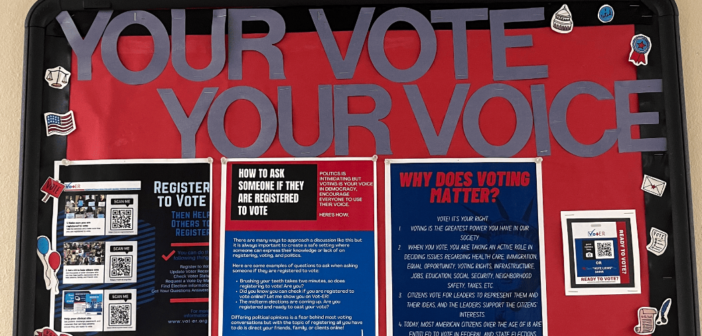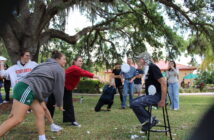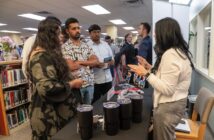by Emily Hernandez Dominguez, Campus News Editor
In 2023, many humanitarian crises unfolded globally, ranging from inevitable catastrophes such as natural disasters to enduring conflicts that span generations. Within these crises, countless innocent individuals find themselves entangled, enduring substantial suffering.
During times of crisis, when first responders like law enforcement, EMS, and firefighters are expected to be the initial responders, the presence of a social worker in such situations is not the first consideration.
Often, social workers are linked with roles in child welfare, school support, or therapy, which is accurate, yet the scope of their profession extends far beyond these realms.
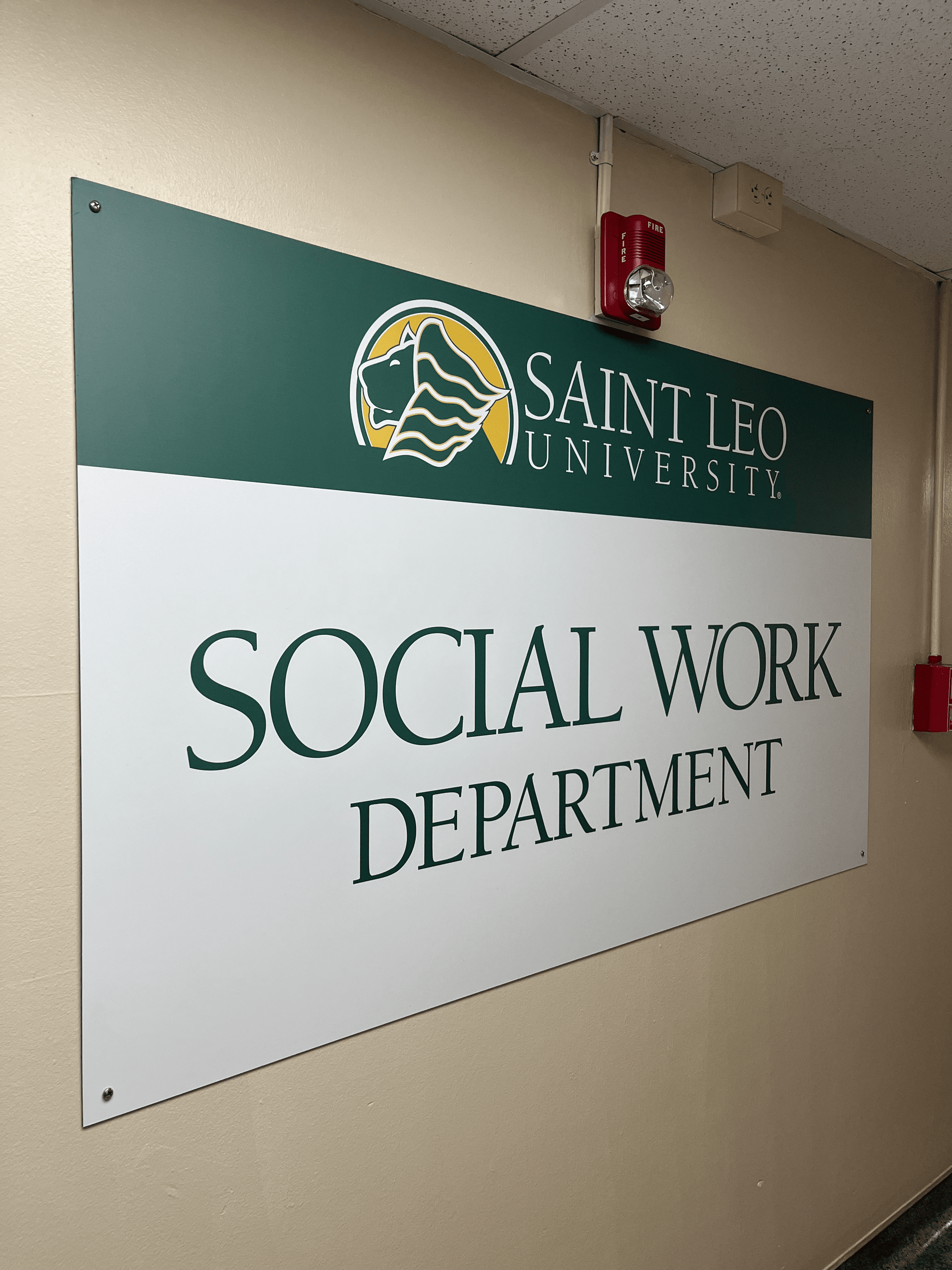
Dr. Ebony Perez, an assistant professor of social work at Saint Leo University, sheds light on the profession’s misconceptions: “We’re often labeled the expressive people, but that’s a misconception. We pair empathy and social compassion with action. That’s what social workers do.”
Social work is committed to enhancing the well-being and quality of life for individuals, families, groups, and entire communities. Social workers offer crucial services during and after events in critical moments, contributing significantly to prevention efforts.
“It’s that focus and the prevention on societal problems. So it’s a combination of responding when something happens but also wanting to look at our world and set provisions in place to avoid conflict in the first place,” explains Perez.
Equipped with specialized training, social workers employ various techniques such as problem-solving, empathic responses, support provision, and resource offering. Their primary goals involve aiding individuals or groups in recognizing a crisis and intervening to minimize disruption, distress, and potential danger.
“Most recently, I would say, with the COVID-19 pandemic, if you think about what was happening in our hospitals, particularly at that time, where you have people who are dying, we’re not understanding what’s going on and people are dying quickly,” Perez recalls. “Somebody has to help people kind of process that trauma to be able to continue to do those jobs. And that’s another area where social workers come into play.”
In social work, there are three primary levels of practice: micro, mezzo, and macro.
Micro involves smaller units like families or individual relationships. Mezzo deals with medium-sized systems like communities, while macro tackles larger systems and policies within social work. Social workers addressing humanitarian crises often operate at the macro level.
They engage in large-scale advocacy, known as macro-level work, by influencing local and global policies. Their advocacy involves promoting peace-centric policies, backing international efforts to resolve conflict, and collaborating to alleviate disputes worldwide.
Additionally, they conduct research, educate policymakers and the public, and advocate for systemic changes that address inequality and discrimination and promote equity and social justice for a more peaceful society.
Social work professors are doing just that on the Saint Leo University campus.
Christina Cazanave, M.S.W., is the director of field education and instructor of undergraduate social work at Saint Leo University. Her focus includes initiatives within the social work profession to combat social injustices using advocacy and public policy. Working together with Perez, they use their platforms to support social justice.
“As a Macro social worker, I am tasked with looking at issues from the perspective of the broader society. It is the belief of a macro social worker that society only succeeds when everyone has equitable access to goods, services, and basic needs,” Cazanave states. “Without it, we jeopardize humanity, peace, and the foundation of justice.”
Through her work as a professor, Cazanave uses courses such as ‘Advocate for Justice’ and ‘Social Issues in Pop Culture’ to educate students on various local, federal, and international students.
Additionally, in her role as the National Association of Social Workers (NASW) Florida chapter Legislative Chair, she uses her voice to advocate for the needs of others.
“We are one human race who should have the ability to choose for themselves what makes them happy, healthy, and prosperous. For those who do not have those choices, it is the job of a macro social worker to mobilize, advocate, vote, change policies, run for elected positions, and partner with international organizations to use their voice and power to ensure that all citizens can live the life they choose without persecution of their beliefs, lifestyle, and identity,” Cazanave says.
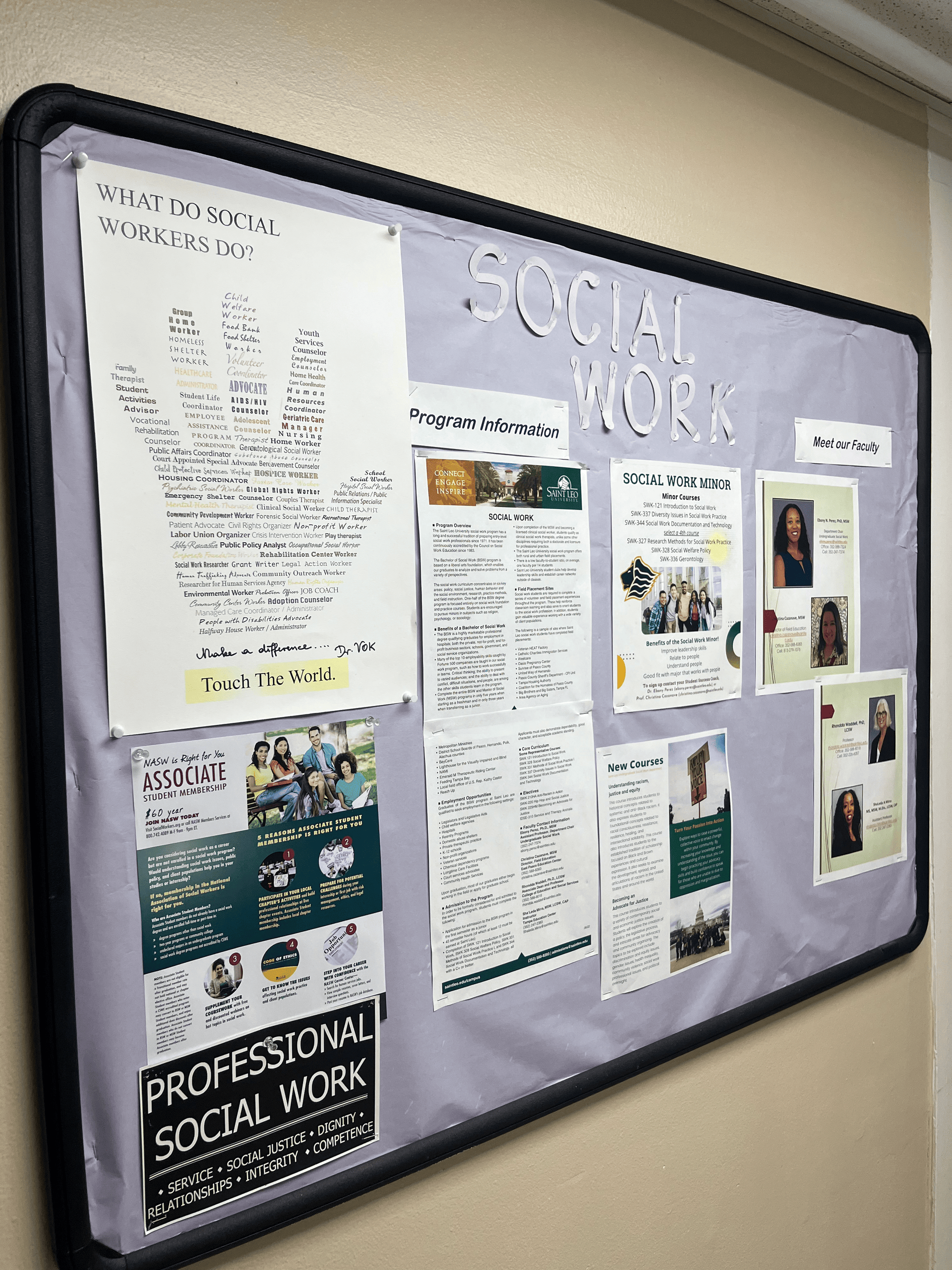
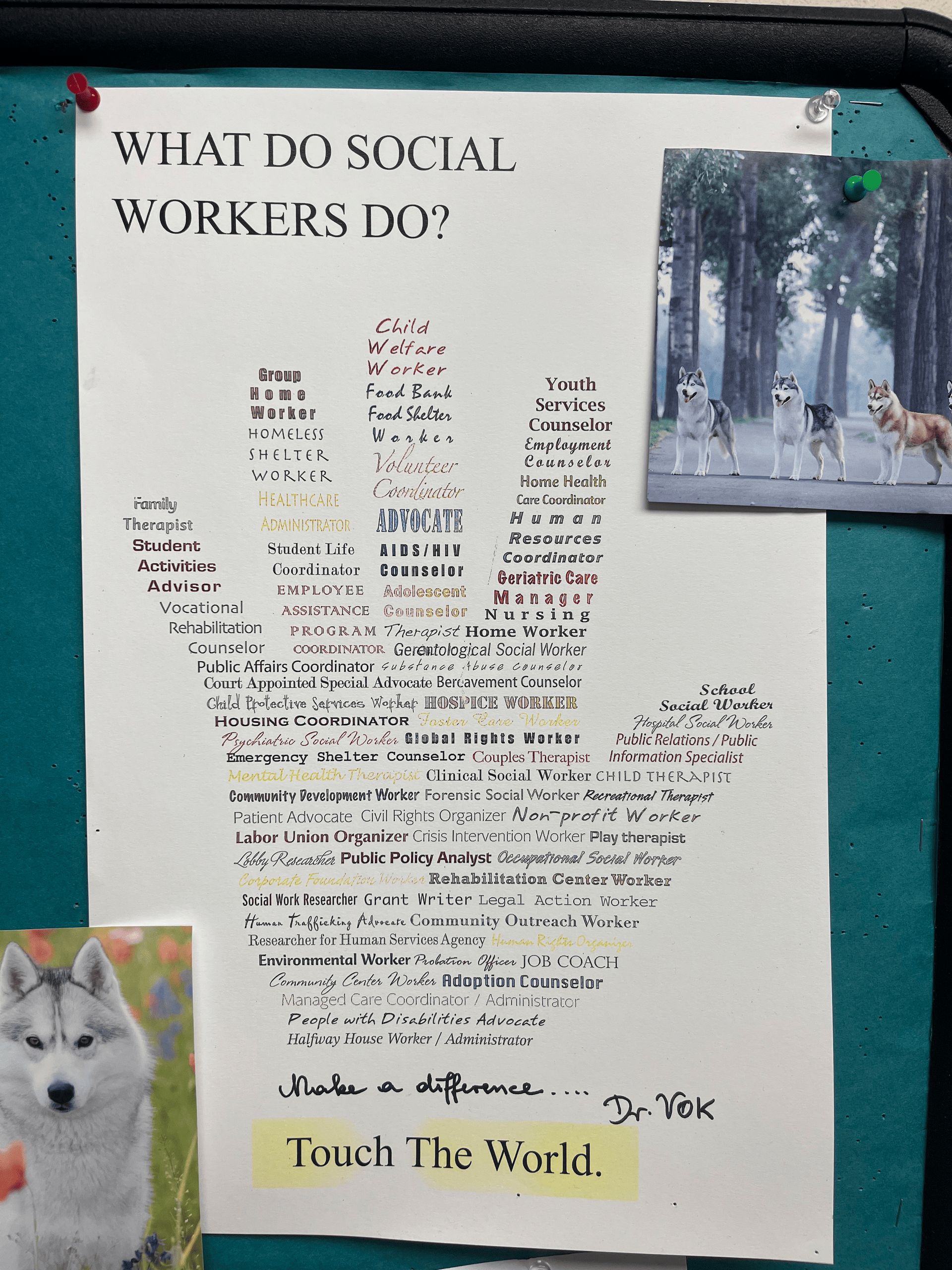
Perez contributes to global harmony through her courses and involvement as the Co-chair of the Council on Social Work Education (CSWE) Council on Racial, Ethnic, and Cultural Diversity, supporting initiatives aimed at inclusivity and understanding.
While contributing to humanitarian efforts mainly happens at the Macro level, both micro and mezzo Social Workers have a role to play. Advocacy for world peace at the micro level involves engaging in actions that promote understanding, empathy, and conflict resolution in everyday interactions.
Mezzo-level initiatives, like community engagement programs and school-based initiatives, promote peace by fostering understanding and conflict resolution within communities.
“The broader society is not just the inner circles people interact with daily, but all those locally, nationally, and internationally,” Cazanave emphasizes.
Mary Moonen, a clinical social worker in Bradenton, sells handmade jewelry to raise funds for humanitarian efforts in Ukraine. Geoff Simons, a social work adjunct professor at Saint Leo University, led a workshop explaining unconscious and implicit bias, how we develop unconscious bias, examples, and management tips.
Across micro, macro, or mezzo social work, social workers strive in diverse ways toward a common goal: fostering world peace and social justice and ensuring safety for all.
“What social work is about is really fighting for peace,” Perez stresses. “If we are moving towards peace, we can not just say we want peace. We really have to fight for justice. And when you fight for justice what you do is you move society to a peaceful journey. We are people out in the world who are fighting for justice and that ultimately globally can lead to peace.”

